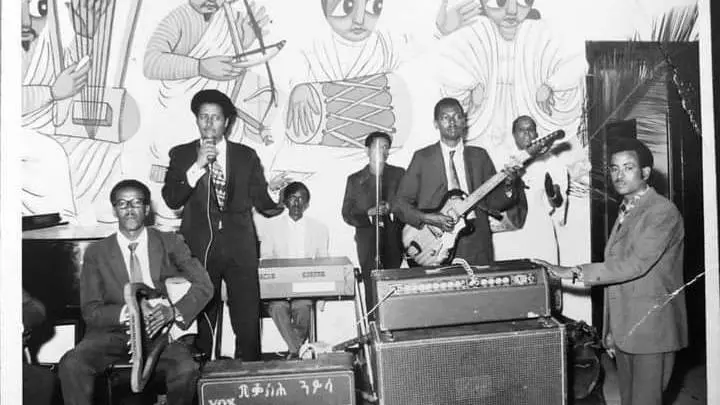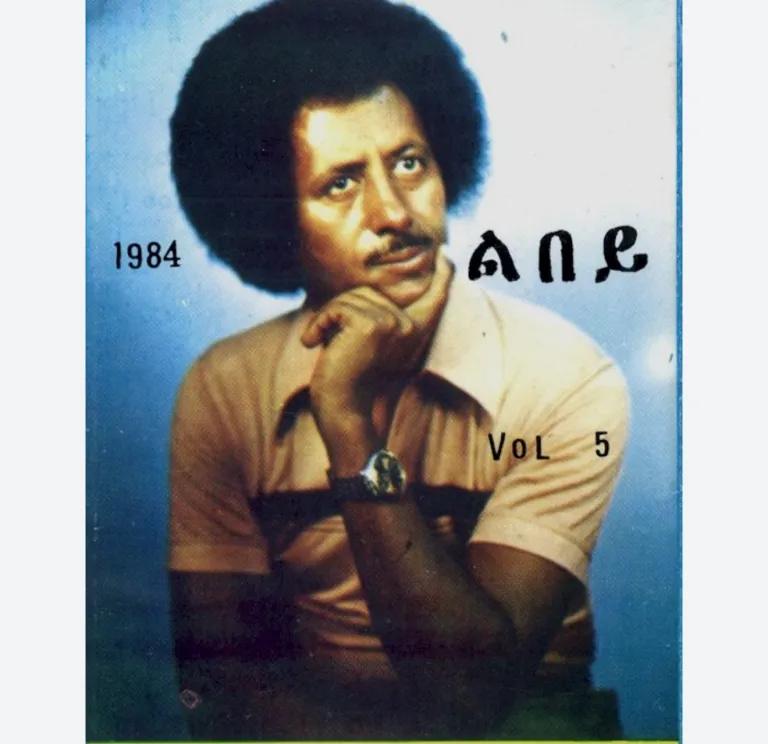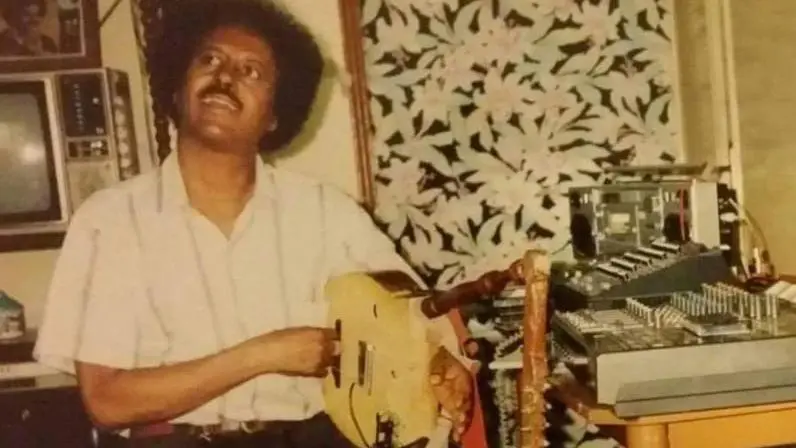Source: Ethiopia Observer
Eritrean singer and songwriter Bereket Mengisteab, whose career spanned nearly 60 years, has died at the age of 89. His son, Kibrewosen Bereket, confirmed that he passed away in Asmara on Wednesday morning.
Bereket released more than 300 songs during his career, including several studio albums and numerous singles. His beautiful compositions, commanding stage presence, deft krar playing, and expressive use of the Tigrinya language made him one of Eritrea’s most admired and enduring musicians.
Born in 1938 in a small village north of Asmara, which at the time was part of Ethiopia. As he recalled in an interview, during his boyhood on the farm, Bereket would hum along with the flute, a practice that quietly honed his breath control. Unable to find bamboo, he crafted a flute from wood, carefully making holes to produce the notes. He also watched older boys playing the krar—a traditional six-string lyre. Inspired by their music, he set out to build one himself, hand-cutting wood and using goat skin and bits of metal from home to craft an instrument born of ingenuity. He absorbed rich history and storytelling—known in Tigrigna as Zanta—much of which he had learned from his grandmother, who lived to an old age. For someone who never attended school, these experiences proved profoundly formative, shaping his creativity and sense of identity.
Bereket moved to Addis Ababa in the 1960s. There, he worked as a barber for a year. One of his clients, Tekle Beyene, an Eritrean dance teacher at the Haile Selassie Theatre, came in for a haircut. Pleased with Bereket’s work, Tekle invited him to a restaurant, where he noticed a krar hanging on the wall. Bereket picked it up and played, immediately surprising Tekle with his talent. Tekle asked him, “Why are you working as a barber?” The very next day, Tekle took Bereket to the Haile Selassie Theatre, where he was invited to perform with the Theatre Orchestra. There, he started covering folk songs using the krar and the oud, a traditional stringed musical instrument. He then began writing his own lyrics, explaining that he did so because there was no one available to compose Tigrigna lyrics for him. At the time, he had the opportunity to tour both across the country and internationally, while also running a small music shop with his wife.
By the 1970s, Bereket Mengisteab, already gaining a modest reputation, left the orchestra to pursue a solo career with his own group, Mekaleh Guayla (“Echoes of the Dance”). He found success among both Ethiopians, singing in Tigrinya, and Eritreans, who appreciated the coded references to Eritrea’s liberation struggle in his songs. He also performed one Amharic song for the public, Lidjinet Yibekal, one of the few Amharic songs he ever sang. He later joined the Eritrean Liberation Front in 1974. From then on, he fought both with a rifle on the battlefield and with his krar in concerts held at the military camps of the clandestine army.

But the guerrilla life had its limits. Weary from combat and the hardships of clandestine life, as well as from internal disputes among the various Eritrean liberation armies, Bereket distanced himself from the front lines in 1979 and went into exile in Saudi Arabia. In a later interview, he recalled that his wife had been arrested in Addis Ababa and his children were left alone, forcing him to work to support them. From his residence in Jeddah, he continued to sing, recording and distributing love songs and political commentary on records and cassettes. One such work is Lebey, released in 1984 on the Toteel Music label.

When Eritrea declared its independence in 1993, Bereket Mengisteab went on a major tour across the country before returning to manage his small music shop in Addis Ababa. He eventually left the Ethiopian capital in 1998, during the outbreak of the Ethiopia-Eritrea war, and moved to Asmara—where, once again, he opened a music shop.
In the past year, he had been struggling with illness. “My father made the most of his life and created work that will last forever. We say goodbye to him with honour, not sorrow,” his son, Kibrewosen Bereket, said.







